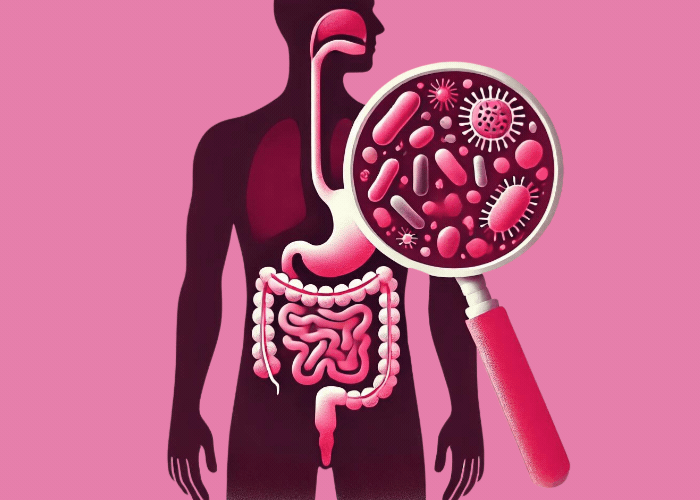Constant dieting is not only annoying and exhausting, it even slows down your metabolism. With an active metabolism, losing weight is much easier and of course it works faster. However, bad lifestyle habits can slow down our metabolism and extra kilos can be the result.
How does your metabolism work?

Digestion is an important part of metabolism, it is, so to speak, “the preliminary stage”. Metabolism includes all biochemical processes and procedures in our cells. This includes tasks such as extracting nutrients from food, providing energy when the body needs it or removing waste products from the organism. Metabolism is made up of several metabolic processes: Glucose metabolism, protein metabolism and fat metabolism. If all metabolic processes run optimally, it is easier to lose weight and keep it off in the long term. If you want to boost your metabolism, you must first distinguish between the catabolic and anabolic metabolism, in which the three metabolic processes mentioned above are found.
Catabolic and anabolic metabolism
These two processes never run simultaneously, but always one after the other. Hormones and enzymes ensure a safe process.
Catabolism
Catabolism is the breakdown metabolism. In this, the ingested food is broken down into individual molecules and chemical compounds and energy is obtained. Here, for example, proteins are converted into amino acids and carbohydrates into simple sugars. Excess energy that the body no longer needs for the functions that are essential for survival is stored and stored in the fat or muscle cells.
Anabolism
Anabolism is the building metabolism that ensures the construction and repair of cells. The amino acids, fatty acids and glucose broken down beforehand are converted back into larger components such as proteins, fats and complex carbohydrates and can be used for other functions such as muscle building, wound healing, blood renewal or general cell renewal.
 Restricting calories to lose weight?
Restricting calories to lose weight?
People go on diets so that they lose a lot of weight in as short a time as possible. During this time, they usually eat a very one-sided diet and are in a negative energy balance for days or even weeks. This means that less food is consumed than the body needs to maintain its basic functions. This negative energy balance, also called a calorie deficit, is initially seen as optimal because you see the results very quickly in the mirror or on the scales. However, you mainly lose water and not excess pounds – but many people don’t know that! The hunger metabolism is an emergency programme of our body that enabled humans to survive despite hunger millions of years ago. This emergency programme already kicks in after a calorie deficit of at least 500 kilocalories after three days. In order to compensate for the missing calories from food, primarily muscle mass is lost so that energy consumption decreases. Fat is also lost, but less than hoped for. Fat loss becomes slower and slower over time because the basal metabolic rate becomes lower and lower and you end up consuming fewer calories at rest than before. Eating a protein-rich diet and doing a lot of sport does not help either. In the starvation metabolism, it is mainly muscle that is broken down. Another reason why most people lose weight quickly in the first few days of therapeutic fasting or various juice cures is that the body excretes a lot of water at first. Unfortunately, the basal metabolic rate remains low long after a diet. The body quickly tries to build up fat reserves again so that we are ready for the next hunger period. Every diet we go on has a lasting effect on our metabolism. The more diets we follow, the more abundant our fat deposits become and the more our basal metabolic rate drops. This is the reason why some people find it very difficult or even impossible to lose weight.
Lose weight by speeding up your metabolism – 7 tricks
To keep your metabolism working rather than slowing down, follow these tricks:
1. Forget going hungry
As already described above, one-sided diets with a very strict reduced amount of calories are not suitable to bring you closer to your feel-good weight. You don’t want to lose weight as a priority, you want to lose fat. And you will learn how to achieve this in the next paragraph.
2. Get moving!
Our body needs a lot of energy every day to survive. This energy is called the basal metabolic rate. If you supply your body with more energy (food) during the day than you consume, this energy is stored in the fatty tissue and muscle cells. If you do sport or move a lot in everyday life, your body can specifically access the stored energy. Therefore, the best way to burn calories is to exercise regularly. But not all sports are the same. To lose weight in the long term, a combination of strength training and endurance training is recommended. Strength training is the most effective way to keep your metabolism active. You not only burn energy during training, but also afterwards when you are resting, thanks to the muscle mass you have built up.
3. Go for foods that stimulate your metabolism
Yes, you can boost your metabolism with food! Even for a few hours. This effect is called the thermic effect of food and is the extra energy the body has to expend to digest the food. But there are also individual foods that boost the metabolism. For example, proteins. Unlike fat and carbohydrates, protein-rich foods boost the metabolism. The reason for this is that the body has to expend a lot of energy to digest protein and break it down into amino acids. Proteins also keep you full longer and prevent cravings! But fibre-containing foods are also true metabolism boosters! These include whole grain products, oat bran, legumes and vegetables.
4. Make sure you drink enough water
Water is a valuable elixir for our body. It helps it to perform all its important tasks and is particularly important for digestion. It is recommended to drink about 1.5 litres of water a day. According to studies, just 500 millilitres of water increases energy consumption by 24 percent for the next 60 minutes. It is also recommended to drink water instead of sugary drinks. This way, you automatically consume fewer calories and it is easier to maintain your weight.
5. Get enough sleep
Sleep is very important for the metabolism – especially deep sleep in the first three hours. Disturbed sleep or sleep that is too short can lead to obesity and generally has a negative effect on the metabolism. Adequate sleep is also very important for athletes, because the muscles that are used in sports regenerate during sleep. What many people do not know is that poor or little sleep increases the hunger hormone ghrelin and at the same time reduces the satiety hormone leptin. This often leads to people who are sleep-deprived being hungrier and having difficulty losing weight.
6. Reduce your stress levels
Stress is a real metabolic brake! Relaxing or reducing stress is just as important for your feel-good weight as sport and nutrition. Long-term stress causes the stress hormone cortisol to be released in excessive amounts. The body reacts to this with a defensive behaviour in which it reduces the fat metabolism, regeneration processes are no longer fully carried out and water is stored. Stress often leads to sleep problems, which in turn increases the release of cortisone.
7. Fill your gut with friendly bacteria!
Have you ever heard of so-called “fattening bacteria” and “figure-flattering bacteria”? Probiotics to lose weight? Numerous studies confirm that the intestinal flora of overweight people is usually composed differently than that of normal-weight people. An imbalance between these types of bacteria can therefore be responsible for stubborn obesity. This also explains why many people go on diets every year – and almost always achieve the same result: After a few centimetres of waist circumference have melted away with a lot of sacrifice and sweaty exercise, the pointer on the scale quickly rises again shortly afterwards due to the yo-yo effect. And for many, nothing at all moves downwards – except their good mood. An excess of “fattening bacteria” in the intestine is largely responsible for this. Normally, Firmicutes and Bacteroidetes are present in the intestine in a balanced ratio. Studies have shown, however, that the firmicutes clearly predominate in overweight people and that the ratio between “fatteners” and “figure flatterers” can be shifted up to 2,000 : 1.




























